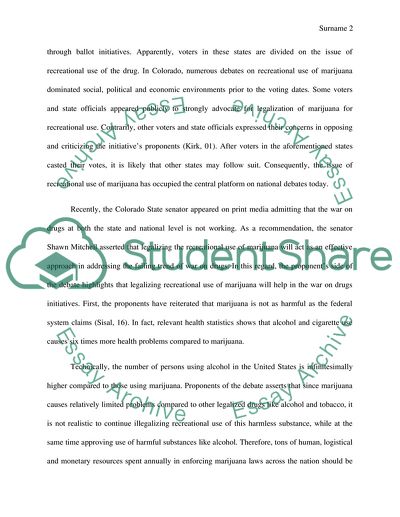Cite this document
(Legalization, Decriminalization, And Recreational Use Of Cannabis Research Paper, n.d.)
Legalization, Decriminalization, And Recreational Use Of Cannabis Research Paper. Retrieved from https://studentshare.org/health-sciences-medicine/1850318-research-paper-over-the-national-debate-on-marijuana-legalization-for-recreational-use-show-both-sides-of-debate-absolutely-no-bias-allowed
Legalization, Decriminalization, And Recreational Use Of Cannabis Research Paper. Retrieved from https://studentshare.org/health-sciences-medicine/1850318-research-paper-over-the-national-debate-on-marijuana-legalization-for-recreational-use-show-both-sides-of-debate-absolutely-no-bias-allowed
(Legalization, Decriminalization, And Recreational Use Of Cannabis Research Paper)
Legalization, Decriminalization, And Recreational Use Of Cannabis Research Paper. https://studentshare.org/health-sciences-medicine/1850318-research-paper-over-the-national-debate-on-marijuana-legalization-for-recreational-use-show-both-sides-of-debate-absolutely-no-bias-allowed.
Legalization, Decriminalization, And Recreational Use Of Cannabis Research Paper. https://studentshare.org/health-sciences-medicine/1850318-research-paper-over-the-national-debate-on-marijuana-legalization-for-recreational-use-show-both-sides-of-debate-absolutely-no-bias-allowed.
“Legalization, Decriminalization, And Recreational Use Of Cannabis Research Paper”, n.d. https://studentshare.org/health-sciences-medicine/1850318-research-paper-over-the-national-debate-on-marijuana-legalization-for-recreational-use-show-both-sides-of-debate-absolutely-no-bias-allowed.


